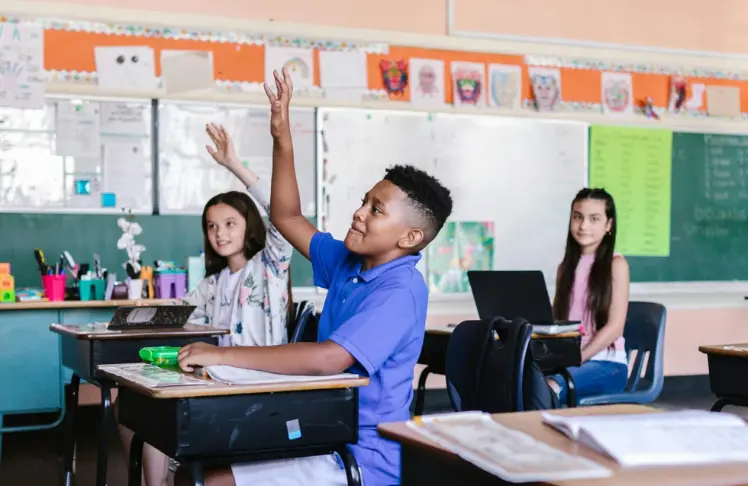
by Aziah Siid
In education, it’s an uncomfortable fact: the teaching workforce is overwhelmingly white and female, particularly in grades K-12. Black men in an elementary school classroom, statistics show, are few and far between.
At the same time, studies show, Black boys make up a disproportionate number of children assigned to special-education classes – a component, experts say, in the schools-to-prison pipeline.
Now, a new study has found that Black male elementary school students matched to Black teachers are less likely to be identified for special education services.
The study, conducted jointly by researchers from the University of North Carolina and the University of California-Davis, shed new light on the persistent problem of Black students misidentified as learning disabled or disciplinary problems. But it also underscores the need to increase recruitment of Black male teachers, who make up just 1.3% of the 3.8 million public school teachers in the U.S.
“Our findings add to the growing body of evidence that having access to Black teachers matters to Black children’s educational journeys,” said Cassandra M.D. Hart, an education professor at UC-Davis and the study’s lead author. “We show that access to Black teachers most strongly affects precisely the types of special disability placements that are more subject to teacher discretion, and therefore where the need for services is more questionable.”
The researchers based their study on data drawn from North Carolina, a state with a relatively high number of Black teachers — roughly 15%, compared to 7% nationally.
At the same time, the state’s Black students are overrepresented in special education programs: 17% of Black fifth graders in North Carolina are in special education services, compared to 13% of white fifth graders.
The data comes from more than 540,000 observations of Black children in grades 1 to 4 and their assigned teachers from 2008 through 2013.
The analysis found that “Black students matched to Black teachers had a reduced likelihood of being newly identified with disabilities,” according to the study. The effect, the study found, was especially pronounced among Black boys — particularly those who were economically disadvantaged.
Compared to their white peers, however, Black students are far less likely to be taught by teachers who look like them, according to the study.
That’s a problem because identifying students who need special educational help “generally (relies) on teacher or administrator discretion” rather than expert medical analysis, according to the study. “These disabilities may be most prone to subjectivity and, ultimately, misclassification.”
Importance of Same-Race Teachers
Historically, the lack of representation is problematic because Black teachers hold higher expectations for Black students, they are associated with better outcomes for Black students, higher scores on tests, increased attendance, and even high school graduation and college enrollment, according to the study.
With innovative programs like the Center for Black Educator Development, and the Black Mother’s Forum consistently recruiting teachers, and attempting to shift traditional classroom structure, the need for more Black teachers continues to be evident through research like this latest study.
The need to look at how the matching of same-race teachers impact student placement is partially due to substantial research on the gaps that emerge between Black students and other races. That includes differences between enrollment into discretionary educational settings like gifted programs or for special education services.
In looking at the special education-to-prison and foster care-to-prison pipeline – which both stem from fundamental structures in all school types – this research spotlights the need for Black students being taught by teachers who understand their experiences.















